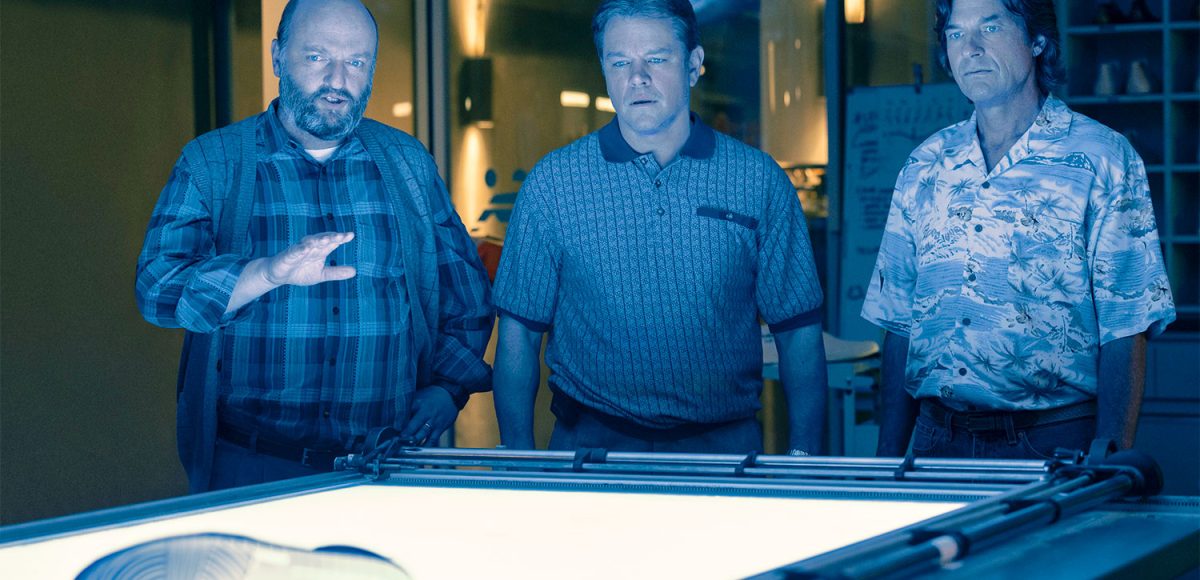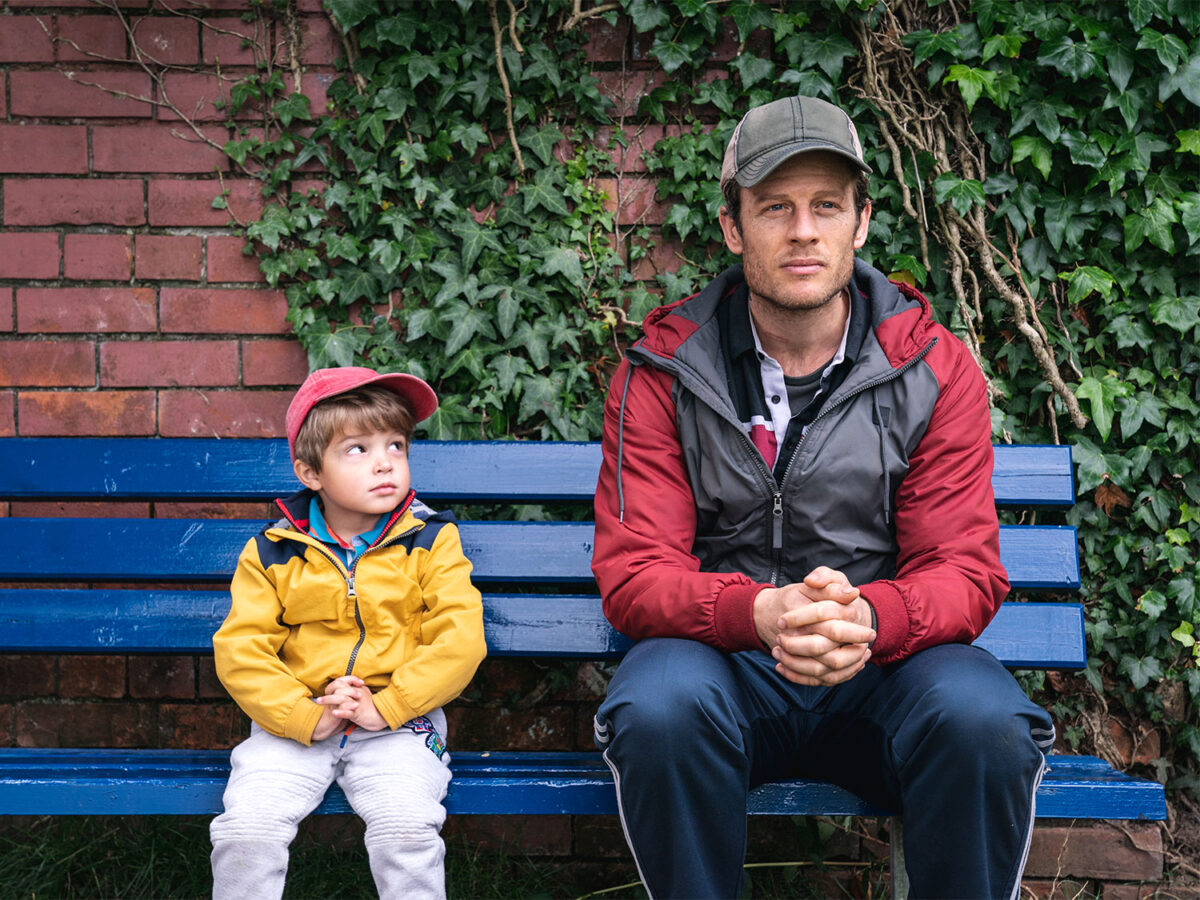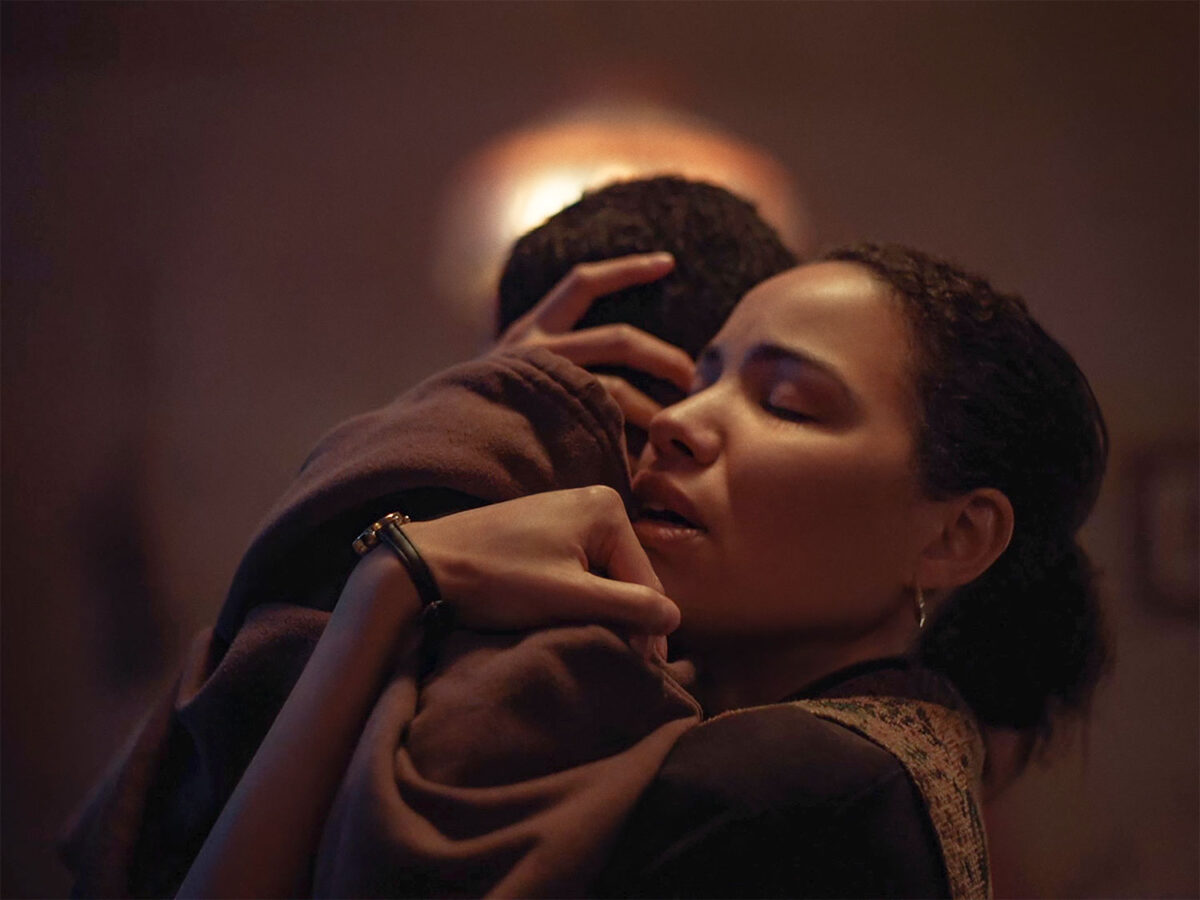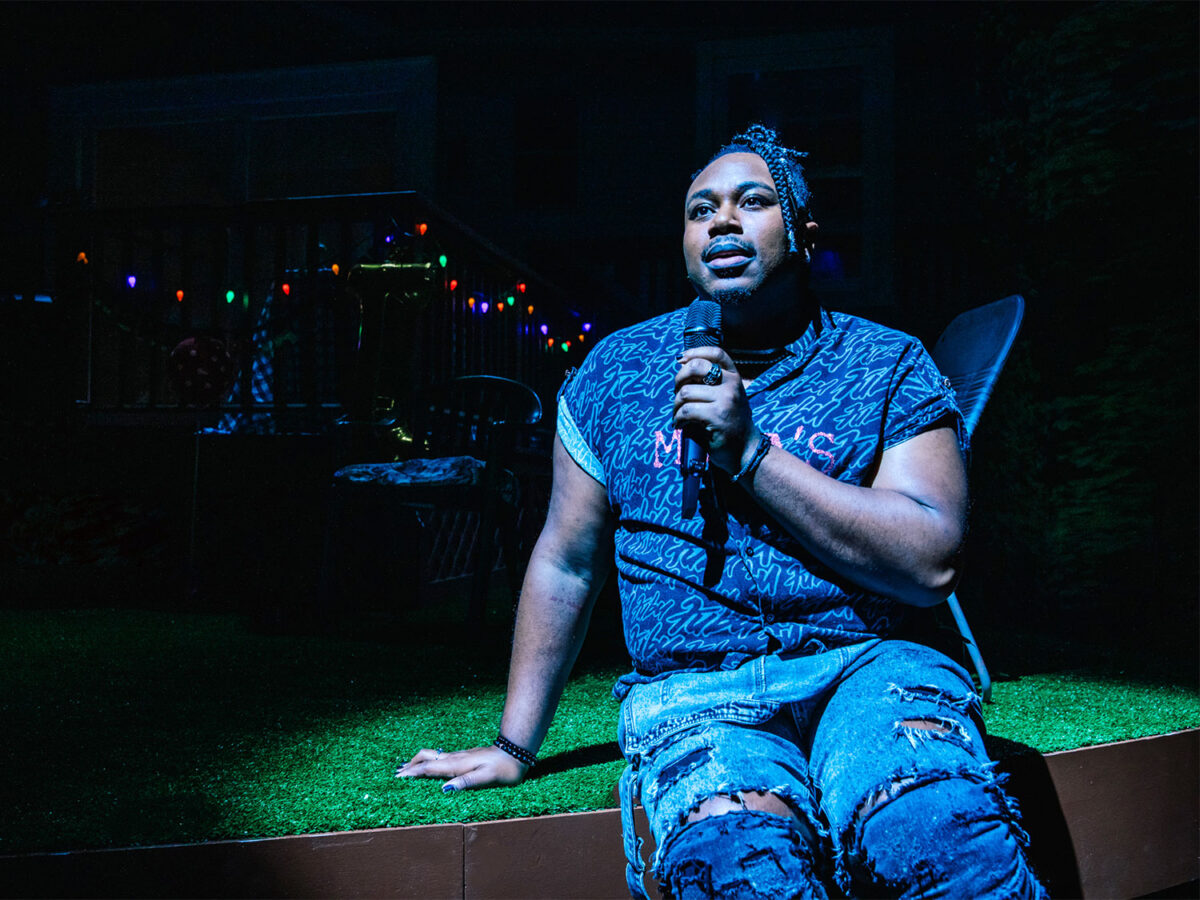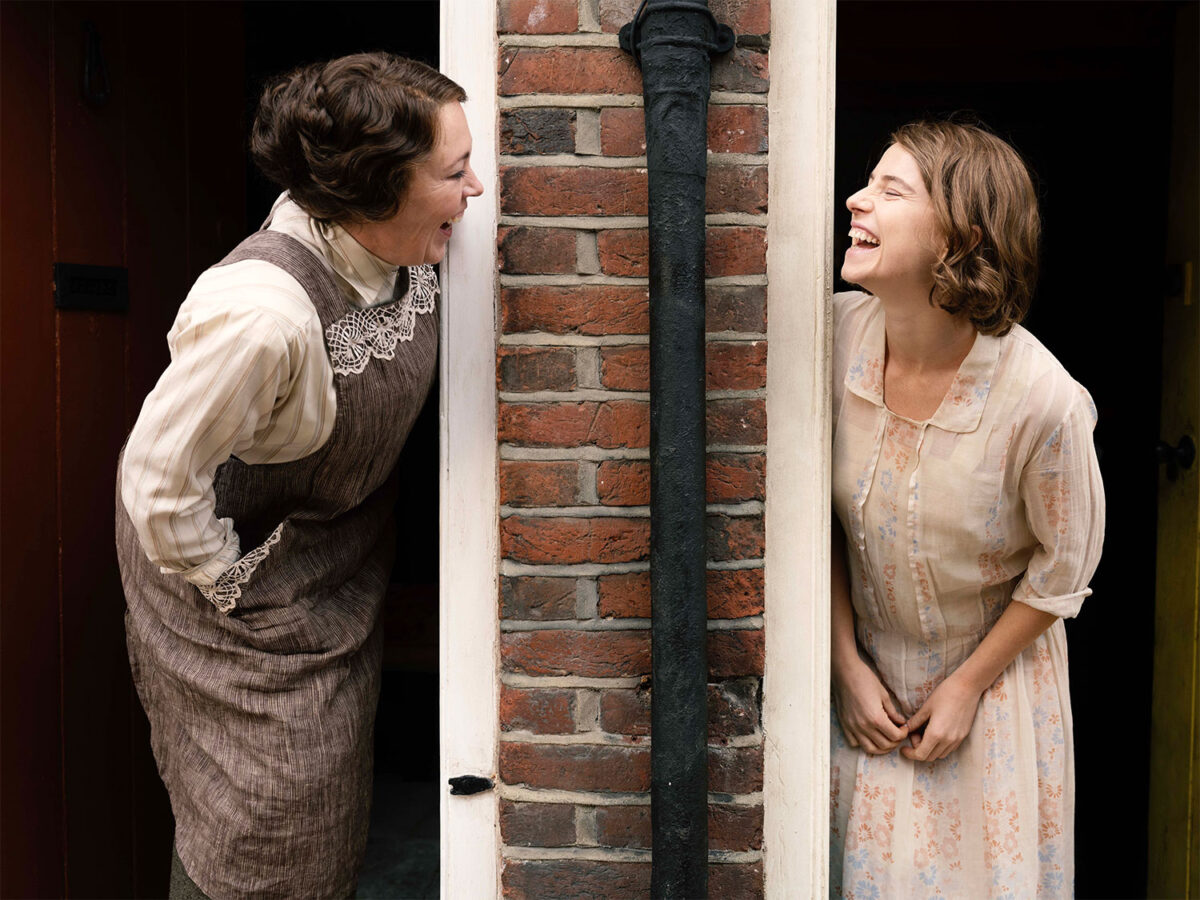“Air,” about the Nike-Michael Jordan marriage, is a pure pleasure from beginning to end. I’m still smiling and it’s been days since I saw it in a movie theater with a crowd who laughed and listened and held their breaths collectively. From the first moment when we’re introduced to Nike’s basketball scout, Sonny Vaccaro, stroking the egos of high school players, I knew this was a sure thing. Imagine my amazement when suddenly I recognized the site. It was the recreated gym of Bishop Gorman High School, a basketball powerhouse in Las Vegas, with the banners and uniforms proclaiming it the home of the Gaels. This would ordinarily go unnoticed by the vast majority of viewers, well, essentially everyone. Clearly, all you needed to know was that this was a high school gym populated by players and fans. Why did it matter to me? My husband had played on that team, a state champion, a few (well more than a few) years before the time frame of the film. Needless to say, I was already on the bandwagon.
It is a significant opening, not because of the school or the players, but because it’s Vegas, the gambling capital of the world. And Sonny is a gambler. Leaving the school, he immediately heads for the Strip and begins betting on the over/under of various players and teams. Returning later, he collects his vast winnings and ambles over to the craps table where he proceeds to piss it all away. He’s an unrivaled genius when it comes to sports. Gambling on whether a player or team will score higher or lower than the given odds required an absolute knowledge of team and player statistics, not just personal but against every conceivable opponent. There is some luck involved in “guessing” right, but with someone as skilled as Sonny, the odds are in his favor. Losing at the tables, and in rather short order, established that without that sports edge, he’s at the mercy of the house like everyone else. This scene establishes everything we need to know or will come to know about Sonny Vaccaro.
“Air” is the story of Nike, a powerhouse in the runner’s shoe market in 1984 and a never-got-started in basketball shoes. To call them an also-ran would be giving them more credit than they deserved. Phil Knight was a genius when it came to running shoes and the success of his company was a reflection of that. But basketball was a shoe of a different color. His small, really miniscule, basketball division was made up of marketing wiz Rob Strasser, a few suits and Sonny Vaccaro, a savant when it came to basketball who scouted high schoolers and had set up a very popular summer basketball camp. But Sonny, complaining to Howard White, Nike’s resident NBA expert, former player and athletic liaison, felt that the company would never be able to compete unless they could sign a major star. The amount in their budget was designed to pay for three shoe recruits, but anyone with real potential had either been signed by Adidas or Converse or refused to sign for the piddling amount being offered by Nike, a brand worn by no one recognizable in basketball.
Sonny was that unstoppable force coming up against an immovable object, Knight. Knight wouldn’t increase the budget of the basketball division and Sonny couldn’t find three worthwhile recruits to sign for that amount of money. Approaching Strasser with his idea of spending the total budget on one high-profile player was a dead end. Sonny was convinced that they had a chance of signing a future superstar and set about convincing Strasser and Knight that Michael Jordan, the third pick in that year’s draft, was the man. No, he had yet to play a game in the pros, but endless hours watching films of Jordan’s college games at North Carolina under Coach Dean Smith made him certain.
His colleague White was on his side, but Sonny had to find an inside track. He consulted with George Raveling, a personal friend, who had coached Jordan on the gold medal-winning basketball team that summer in 1984. Raveling agreed with Sonny’s vision but told him that Jordan’s most important advisor was his mother, Deloris. But besides his team at Nike, Sonny’s most formidable foe was Jordan’s agent, David Falk. Nike, he said, wasn’t in the running. In first place was Adidas, Jordan’s personal favorite and the shoe he wore off the court; in second place was Converse, the most famous basketball shoe and the shoe sponsor of Jordan’s college team, the North Carolina Tar Heels. Nike not only didn’t have the money, but they didn’t have any stars. Falk, in language far more colorful than I can repeat here, said that they didn’t have a snowball’s chance in hell.
Sonny was not to be dissuaded and secretly decided that he would go behind everyone’s back and approach Deloris Jordan, knowing that if he failed it might finish his career at Nike and it would definitely be the end of any relationship with Falk, the most powerful agent in the NBA. Michael, 21, stubbornly refused to meet with Nike. He had already let his preferences be known. Sonny needed to get Michael to meet with Nike and the only avenue he could see was convincing his mother to at least bring him to the table.
There are no spoilers here. The outcome is already established and well known. But what is thrilling in the telling are the roadblocks to the establishment of the Nike/Jordan partnership and the groundbreaking deal that was made with Deloris Jordan as the lead negotiator, not just with Nike and Falk, but also with her son. It’s amazing that such a story with a foregone conclusion when viewed in hindsight, could be as exciting as it is. It may have been Sonny’s vision, but this was truly a team effort.
There is no question that this is a well-told story from an excellent screenplay written by Alex Convery and astutely directed by Ben Affleck. But the true pleasure is in seeing this great cast milk the script for every drop of humor and interest that will have you smiling from beginning to end; smiling, that is, unless you’re laughing out loud. It is truly a sign of the one-two punch of a great writing/directing team that you are on the edge of your seat wondering what will happen next.
But let’s get back to the X-factor in this scenario. The actors. From the bit parts to the stars, everyone is pitch perfect. Viola Davis, as Deloris Jordan, is formidable, wry and knowing. The twinkle in her eye tells you that she is in absolute control and understands not just who her son is, but what he can be. She’s looking for someone else with that vision. It is significant to know that Michael Jordan himself wanted her, and no one else, to play his mother. What Jordan wants, Jordan gets. But then again, in terms of basketball, he made very few mistakes.
Marlon Wayans plays George Raveling seriously and straightforwardly. Raveling had a close personal relationship with Vaccaro at that time. Raveling’s shorthand with Sonny speaks of a past history and trust communicated with small gestures and easy laughs. Chris Tucker as Howard White uses his comedic persona to great advantage. Wild, loud and wide-eyed, Tucker’s White is hilarious but also shows the fear of a man whose dreams of stardom were crushed early on with his knee and is aware that executive jobs for non-stars of his color are few and far between.
Ben Affleck gave himself the role of Phil Knight, Zen guru of the company, constantly spouting Buddhist aphorisms that sound like they came off a “Hang in there” kitty poster. He’s amusing and relishes the pink running tights he wears, but as an actor, he’s much better as the director.
Matthew Maher as Peter Moore the shoe designer is a hoot. He’s the quintessential geek who is doing the one thing in the world he absolutely loves. His eyes light up when asked to accomplish the impossible and the joy positively radiates from him. Eccentric looking and eccentric acting, he’s the definition of loveable.
Jason Bateman is outstanding in support as Rob Strasser, the level-headed marketing VP. Bateman is a master of little movement and subtle facial expressions that can communicate worry, exhilaration, fear and joy all with the blink of an eye. His approach is so naturalistic that his acting is seamless. That the tone of his voice is almost always level makes his ability to shift emotions and communicate effectively all the more impressive. He may not have been the lead, but the film would not have been nearly as good as it was without his presence. He was the expositional bridge filling in all the details without you realizing the significance of that role. You never once feel as though he’s telling you what is happening and that is exactly what he’s doing.
If there is a break-out performance, it’s Chris Messina as David Falk, Jordan’s agent. It’s as if he was channeling Ari Emmanuel when he was a rogue agent starting his own firm. Loud and brash in an impeccably expensive suit, he veers from calm and professional one moment, to histrionically profane the next. This is a guy you definitely didn’t want to mess with and he made Sonny Vaccaro know it. Now I’ve heard, and even used, a lot of profanity in my day but I have never heard it taken to the level used by Falk in this film. It’s positively operatic and is a character unto itself. His scenes are relatively short, almost always punctuated with expressions you’ve never even imagined, and it’s all the more impressive because they are one-man shows on telephone calls. I had no idea that Messina, rarely first on the call sheet, was so convincingly funny and able to communicate such depth of character. He’s a take-no-prisoners alpha male who can adjust his demeanor appropriately depending on his audience or need. “Entourage” notwithstanding, this is the best portrait of an uber-agent I’ve ever seen.
And finally, Matt Damon as Sonny Vaccaro. There is no question that Matt Damon is one of the finest actors of his generation. He brings sympathy and gravitas to every film he’s in. The antithesis of vain, he inhabits Sonny with his lack of muscle tone that leans toward fat and his unfashionable, even for the 80s, polo shirts and ill-fitting pants. He ambles, doesn’t stride, and exudes a quiet desperation when he can’t get anyone to agree with his vision of the future. Damon lives Sonny to the degree that you no longer see the actor, only the character. He is the linchpin of this piece and anchors it solidly. Damon carries this film because you care enormously for the success of this schlub of a guy with a gift that can’t be quantified. Damon’s Sonny is the very definition of a rooting interest and the success or failure of this film is whether you can root for him. Believe me, you can and you will.
This is so much more than a sports film; it’s a David and Goliath story about an underdog, not just Sonny but also Nike. Even better, there are no villains, only heroes to be cheered, and I assure you, you will.
Opening wide and playing on the Westside at the Century City 15, Santa Monica 7, AMC Marina Dine-In and Marina Marketplace as well as the Culver Theater, IPIC Westwood and the Laemmle Monica Film Center.
Neely Swanson spent most of her professional career in the television industry, almost all of it working for David E. Kelley. In her last full-time position as Executive Vice President of Development, she reviewed writer submissions and targeted content for adaptation. As she has often said, she did book reports for a living. For several years she was a freelance writer for “Written By,” the magazine of the WGA West and was adjunct faculty at USC in the writing division of the School of Cinematic Arts. Neely has been writing film and television reviews for the “Easy Reader” for more than 10 years. Her past reviews can be read on Rotten Tomatoes where she is a tomato-approved critic.



